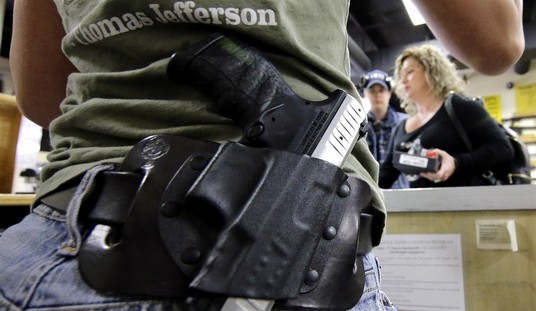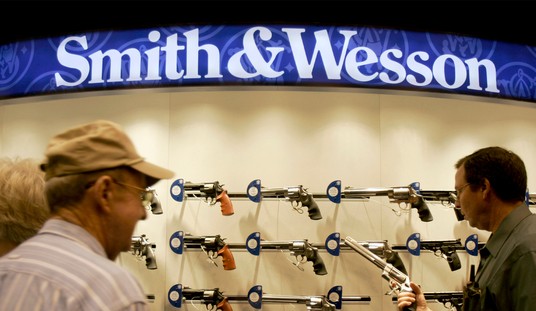The NRA took a significant hit when a Florida court ruled that the state’s law barring long gun sales to people between the ages of 18 and 20. It’s honestly baffling that anyone could believe the Second Amendment somehow shouldn’t apply to people who are old enough to vote and join the military.
Still, that’s the ruling.
Now, the NRA has to consider what they want to do next.
The National Rifle Association is “considering its next moves” after a federal judge upheld a 2018 Florida law prohibiting anyone under 21-years-old from legally buying a firearm.
“While this decision is a setback, NRA-ILA remains dedicated to protecting the Second Amendment rights of law-abiding citizens everywhere,” the NRA’s lobbying arm, the Institute for Legislative Action (ILA), said Friday. “NRA-ILA will this decision in the days to come and decide the best method in which to pursue that goal.”
Unified Sportsmen of Florida Executive Director and NRA Florida lobbyist Marion Hammer in email statements said the NRA “is considering its next moves” in challenging gun control measures adopted by lawmakers after the Valentine’s Day 2018 shooting at Marjory Stoneman Douglas High School in Parkland that left 17 dead.
Chief U.S. Northern District of Florida Judge Mark Walker Thursday issued a 48-page ruling upholding the 2018 law, which also imposed a 3-day waiting period to buy firearms, banned “bump stocks” and granted greater authority to seize weapons under “red flag” laws.
Walker cited as precedent the landmark 2008 U.S. Supreme Court ruling in District of Columbia v. Heller that struck down a D.C. law that banned handgun possession and upheld the fundamental individual right to own a firearm.
While a sweeping victory for gun-owners’ rights, the Court also stated that sustaining “longstanding prohibitions” on firearms possession does not violate the Second Amendment.
“In short, Heller’s listed regulations are similar to restrictions on the purchase of firearms by 18-to-20-year-olds; all target specific groups thought to be especially dangerous with firearms,” Walker wrote.
The problem with invoking Heller, though, is that none of those statutes bar an entire swath of law-abiding adults from owning a firearm while still enjoying all other constitutionally protected rights.
That’s simply not a thing, and it’s why the NRA took it to court.
Now, we need to see what the NRA will do next. My guess is that they’ll go up the legal ladder and, eventually, land in front of the Supreme Court, and that might be even better than a district court win.
See, a win in district court would have overturned Florida’s law, but not the similar statutes around the nation. The same with a circuit court of appeals win.
No, we need a Supreme Court win on this one because it would strike down all such laws.
Further, it could also kill the federal law barring that same age group from purchasing handguns. That’s another problematic law that needs to be removed, but there’s no political will anywhere in the federal government to do address it. That’s a shame, but if the Supreme Court kills it, that’s better than the law being repealed.
After all, repealed laws can be repassed. Laws struck down by the Court? Not so much.
Of course, the NRA has a lot on its plate right now. It’s struggling to stay alive, so it might not really have the resources to pursue this one to the preferred conclusion. That’s probably why we haven’t heard already that they’re appealing the ruling.
That may also be what New York Attorney General Letitia James was hoping to achieve when she started her legal jihad against the nation’s oldest civil rights organization in the first place.








